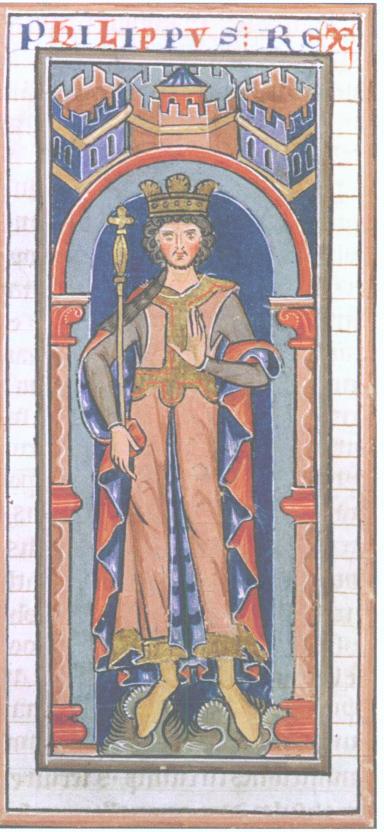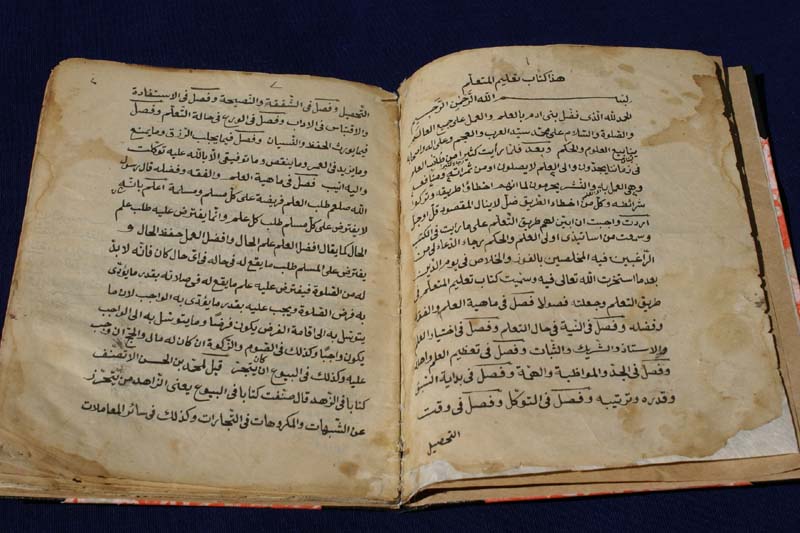|
Burhan Al-Din Al-Marghinani
BurhΡ¹n al-DΡΪn AbuβÄôl-αΗΛasan βĉAlΡΪ bin AbΡΪ Bakr bin βĉAbd al-JalΡΪl al-FarghΡ¹nΡΪ al-MarghΡΪnΡ¹nΡΪ ( ar, Ί®Ί±Ό΅ΊßΌÜ ΊßΌ³Ί·ΌäΌÜ ΊßΌ³ΌÖΊ±ΊΚΌäΌÜΊßΌÜΌä) was an Islamic scholar of the Hanafi school of jurisprudence. He was born in Marghinan near Farghana in 530/1135 (in present day Uzbekistan) He died in 593/1197. He is best known as the author of ''al-Hidayah'', which is considered to be one of the most influential compendia of Hanafi jurisprudence (''fiqh''). Life Al-Marghanini performed the Hajj and visited Medina in the year 544 AH. He died on the 14th of Dhu'l-Hijjah in the year 593 AH one report indicates 596 AH and was buried in Samarqand. Works Al-Marghinani works (some extant and others known only from literary references) include: *''Nashr al-madhhab'' *''Kitab manasik al-hajj'' *''Kitab fi-l-fara'id'' (also known as ''Fara'id al-βĉUthmani'') *''Kitab al-tajnis wa-l-mazid'' (collection of fatwas) *''Mukhtarat al-nawazil'' (collection of fatwas, also known as ''Mukht ... [...More Info...] [...Related Items...] OR: [Wikipedia] [Google] [Baidu] |
Islam
Islam (; ar, έ‰ΊßΌ³ΌêΊΞΊ≥Ό³ΌéΊßΌÖ, , ) is an Abrahamic religions, Abrahamic Monotheism#Islam, monotheistic religion centred primarily around the Quran, a religious text considered by Muslims to be the direct word of God in Islam, God (or ''Allah'') as it was revealed to Muhammad, the Muhammad in Islam, main and final Islamic prophet.Peters, F. E. 2009. "AllΡ¹h." In , edited by J. L. Esposito. Oxford: Oxford University Press. . (See alsoquick reference) "[T]he Muslims' understanding of AllΡ¹h is based...on the Qur ΩΡ¹n's public witness. AllΡ¹h is Unique, the Creator, Sovereign, and Judge of mankind. It is AllΡ¹h who directs the universe through his direct action on nature and who has guided human history through his prophets, Abraham, with whom he made his covenant, Moses/Moosa, Jesus/Eesa, and MuαΗΞammad, through all of whom he founded his chosen communities, the 'Peoples of the Book.'" It is the Major religious groups, world's second-largest religion behind Christianity, w ... [...More Info...] [...Related Items...] OR: [Wikipedia] [Google] [Baidu] |
Hajj
The Hajj (; ar, Ί≠ΌéΊ§Όë '; sometimes also spelled Hadj, Hadji or Haj in English) is an annual Islamic pilgrimage to Mecca, Saudi Arabia, the holiest city for Muslims. Hajj is a mandatory religious duty for Muslims that must be carried out at least once in their lifetime by all adult Muslims who are physically and financially capable of undertaking the journey, and of supporting their family during their absence from home. In Islamic terminology, Hajj is a pilgrimage made to the Kaaba, the "House of God", in the sacred city of Mecca in Saudi Arabia. It is one of the Five Pillars of Islam, alongside Shahadah (oath to God), Salat (prayer), Zakat (almsgiving) and Sawm (fasting of Ramadan). The Hajj is a demonstration of the solidarity of the Muslim people, and their submission to God ( Allah). The word Hajj means "to attend a journey", which connotes both the outward act of a journey and the inward act of intentions. The rites of pilgrimage are performed over five to six ... [...More Info...] [...Related Items...] OR: [Wikipedia] [Google] [Baidu] |
Maturidis
MΡ¹turΡΪdΡΪ theology or MΡ¹turΡΪdism ( ar, ΊßΌ³ΌÖΊßΊΣΊ±ΌäΊ·ΌäΊ©: ''al-MΡ¹turΡΪdiyyah'') is one of the main SunnΡΪ schools of Islamic theology, founded by the Persian Muslim scholar, αΗΛanafΡΪ jurist, reformer (''Mujaddid''), and scholastic theologian Ab≈Ϊ ManαΙΘ≈Ϊr al-MΡ¹turΡΪdΡΪ in the 9thβÄ™10th century. Al-MΡ¹turΡΪdΡΪ codified and systematized the theological beliefs already present among the αΗΛanafite Muslim theologians of Balkh and Transoxania under one school of systematic theology (''kalΡ¹m''); he emphasized the use of rationality and theological rationalism regarding the interpretation of the sacred scriptures of Islam. MΡ¹turΡΪdΡΪ theology is considered one of the orthodox creeds of SunnΡΪ Islam alongside the AαΙ·harΡΪ and Ash ΩarΡΪ, and prevails in the αΗΛanafΡΪ school of Islamic jurisprudence. MΡ¹turΡΪdism was originally circumscribed to the region of Transoxania in Central Asia but it became the predominant theological orientation amongst the SunnΡΪ Muslim ... [...More Info...] [...Related Items...] OR: [Wikipedia] [Google] [Baidu] |
Hanafi Fiqh Scholars
The Hanafi school ( ar, Ί≠ΌéΌÜΌéΌ¹ΌêΌäΊ©, translit=αΗΛanafiyah; also called Hanafite in English), Hanafism, or the Hanafi fiqh, is the oldest and one of the four traditional major Sunni schools (maddhab) of Islamic Law (Fiqh). It is named after the 8th century Kufan scholar, Abu Hanifa, a Tabiβĉi of Persian origin whose legal views were preserved primarily by his two most important disciples, Imam Abu Yusuf and Muhammad al-Shaybani. It is considered one of the most widely accepted maddhab amongst Sunni Muslim community and is called the ''Madhhab of Jurists'' (maddhab ahl al-ray). The importance of this maddhab lies in the fact that it is not just a collection of rulings or sayings of Imam Abu Hanifa alone, but rather the rulings and sayings of the council of judges he established belong to it. It had a great excellence and advantage over the establishment of Sunni Islamic legal science. No one before Abu Hanifa preceded in such works. He was the first to solve the cases and ... [...More Info...] [...Related Items...] OR: [Wikipedia] [Google] [Baidu] |
1197 Deaths
Year 1197 ( MCXCVII) was a common year starting on Wednesday (link will display the full calendar) of the Julian calendar. Events By place Europe * Spring – Emperor Henry VI travels to Italy to persuade Pope Celestine III to crown his infant son Frederick II, who has been elected "King of the Romans" at Frankfurt. * King Richard I (the Lionheart) has ChΟΔteau Gaillard (Normandy) built on the Seine River as he fights to restore Angevin power in northern France (approximate date). * Summer – Henry VI takes cruel measures to put down an insurrection in Sicily and southern Italy, which has been provoked by the oppression of his German officials. * September 28 – Henry VI dies of malaria at Messina (also possibly poisoned), while preparing an expedition against the Byzantine usurper Alexios III (Angelos). * Autumn – A German civil war begins upon the sudden death of Henry VI. Henry's brother, Philip of Swabia, takes over the family lands and cl ... [...More Info...] [...Related Items...] OR: [Wikipedia] [Google] [Baidu] |
List Of Islamic Scholars
A ''list'' is any set of items in a row. List or lists may also refer to: People * List (surname) Organizations * List College, an undergraduate division of the Jewish Theological Seminary of America * SC Germania List, German rugby union club Other uses * Angle of list, the leaning to either port or starboard of a ship * List (information), an ordered collection of pieces of information ** List (abstract data type), a method to organize data in computer science * List on Sylt, previously called List, the northernmost village in Germany, on the island of Sylt * ''List'', an alternative term for ''roll'' in flight dynamics * To ''list'' a building, etc., in the UK it means to designate it a listed building that may not be altered without permission * Lists (jousting), the barriers used to designate the tournament area where medieval knights jousted * ''The Book of Lists'', an American series of books with unusual lists See also * The List (other) * Listing (di ... [...More Info...] [...Related Items...] OR: [Wikipedia] [Google] [Baidu] |
List Of Hanafis
The following is the list of notable religious personalities who followed the Hanafi Islamic madhab followed by the section of Contemporary living Hanafi scholars, in chronological order: *Abu Hanifa (d. 767) *Ibn al-Mubarak (d. 797) *Abu Yusuf (d. 798) *Muhammad al-Shaybani (d. 805) *Abd al-Razzaq al-San'ani (d. 827) * Yahya ibn Ma'in (d. 847) *Al-Hassaf (d. 874) *Al-Tahawi (d. 933) *Abu Mansur al-Maturidi (d. 944) * Abu al-Layth al-Samarqandi (d. 983) *Abul Ikhlas Hasan ibn `Ammar ibn `Ali al Shurunbulali al Wafa'i (d. 1069) * Al-Sarakhsi (d. 1090) * Abu al-Yusr al-Bazdawi (d. 1100) * Yusuf Hamadani (d. 1141) *Abu Hafs Umar al-Nasafi (d. 1142) * Al-Kasani (d. 1191) *Burhan al-Din al-Marghinani (d. 1197) *Abu Tawwama (d. 1300) * Uthman Siraj ad-Din (d. 1357) * Ala al-Haq (1301-1384) *Ibn Abi al-Izz (1331-1390) *Nur Qutb Alam (d. 1416) *Badr al-Din al-Ayni (d. 1451) *Ibn Kemal (d. 1536) *Ibrahim al-Halabi (d. 1549) *Usman Bengali (d. 1573) *Ali al-Qari (d. 1605) *Ahmad Sirhindi (d. ... [...More Info...] [...Related Items...] OR: [Wikipedia] [Google] [Baidu] |
Al-Zarnuji
Burhan al-Din al-Zarnuji or Burhan al-Islam al-Zarnuji also spelled az-Zarnuji was a Muslim scholar and the author of the celebrated pedagogical work ''Ta'lΡΪm al-Muta'allim-αΙ§arΡΪq at-Ta'-allum'' (''Instruction of the Student: The Method of Learning''). Life Al-Zarnuj was born and lived in Zarnuj, a well-known town beyond the river Oxus in the present Turkistan Region of Kazakhstan. Burhan al-Din (proof of Din) or Burhan al-Islam (proof of Islam) al-Zarnuji were his agnomen, or moniker. Collections of biographies believed that his given name was al-Nu'man ibn Ibrahim. He studied with many shaykhs including: Shaykh BurhΡ¹n al-DΡΪn βĉAlΡΪ ibn AbΡΪ Bakr al-MarghΡΪnΡ¹nΡΪ author of ''Al-HidΡ¹yah'', Shaykh Abu al-Muhamid Qawaduddin Hammad ibn Ibrahim al-Saffar; the great Shaykh Hasan ibn Mansur Qadiykhani; and others. The exact date of his death is unknown, though it is speculated that he died in 620AH (1223CE) in Bukhara. Works Al-Zarnuji's treatise, ''Ta'lΡΪm al-Muta'allim ... [...More Info...] [...Related Items...] OR: [Wikipedia] [Google] [Baidu] |
Abu Hafs Umar An-Nasafi
Najm ad-DΡΪn Ab≈Ϊ αΗΛafαΙΘ 'Umar ibn MuαΗΞammad an-NasafΡΪ ( ar, ΌÜΊ§ΌÖ ΊßΌ³Ί·ΌäΌÜ ΊΘΊ®Όà Ί≠Ό¹ΊΒ ΊΙΌÖΊ± Ί®ΌÜ ΌÖΊ≠ΌÖΊ· ΊßΌ³ΌÜΊ≥Ό¹Όä; 1067βÄ™1142) was a Muslim jurist, theologian, mufassir, muhaddith and historian. A Persian scholar born in present-day Uzbekistan, he wrote mostly in Arabic. Works He authored around 100 books in Hanafi jurisprudence, theology, Quran exegesis, Hadith and history. Theology * ''Al-'Aqa'id al-Nasafiyya'' ( ar, ΊßΌ³ΊΙΌ²ΊßΊΠΊ· ΊßΌ³ΌÜΊ≥Ό¹ΌäΊ©) or Aqa'id al-Nasafi'' ( ar, ΊΙΌ²ΊßΊΠΊ· ΊßΌ³ΌÜΊ≥Ό¹Όä) is his most celebrated work in Kalam, which alongside ''Al-Fiqh Al-Akbar'' ( ar, ΊßΌ³Ό¹Ό²Ό΅ ΊßΌ³ΊΘΎ©Ί®Ί±) of Abu Hanifa and ''Al-'Aqeedah al-Tahawiyya'' ( ar, ΊßΌ³ΊΙΌ²ΌäΊ·Ί© ΊßΌ³ΊΖΊ≠ΊßΌàΌäΊ©) of Abu Ja'far al-Tahawi is one of the three seminal works in Sunni Islamic creed. By 17th century, more than fifty commentaries were written on this work, of which the most famous is al-Taftazani's commentary named ''Sharh 'Aqaid al-Nasafi'' ( ar, Ί¥Ί±Ί≠ ΊΙΌ²ΊßΊΠΊ· ΊßΌ ... [...More Info...] [...Related Items...] OR: [Wikipedia] [Google] [Baidu] |
Muhammad Al-Shaybani
Ab≈Ϊ ΩAbd AllΡ¹h MuαΗΞammad ibn al-αΗΛasan ibn Farqad ash-ShaybΡ¹nΡΪ ( ar, ΊΘΊ®Όà ΊΙΊ®Ί· ΊßΌ³Ό³Ό΅ ΌÖΊ≠ΌÖΊ· Ί®ΌÜ ΊßΌ³Ί≠Ί≥ΌÜ Ί®ΌÜ Ό¹Ί±Ό²Ί· ΊßΌ³Ί¥ΌäΊ®ΊßΌÜΌä; 749/50 – 805), the father of Muslim international law, was an Arab jurist and a disciple of Abu Hanifa (later being the eponym of the Hanafi school of Islamic jurisprudence), Malik ibn Anas and Abu Yusuf."al- ShaybΡ¹nΡΪ, Ab≈Ϊ ΩAbd AllΡ¹h MuαΗΞammad b. al-αΗΛasan b. FarαΗ≥ad ." ''Encyclopaedia of Islam'' Early years MuαΗΞammad b. al-αΗΛasan was born in WΡ¹siαΙ≠, Iraq, in 750; soon, however, he moved to Kufa, the home town of Ab≈Ϊ αΗΛanΡΪfa, and grew there. Though he was born to a soldier, he was much more interested in pursuing an intellectual career than a military one. Shaybani began studying in Kufa as a pupil of Abu Hanifa. When al-Shaybani was 18 (in 767), however, Abu Hanifa died after having taught him for only two years. Shaybani then began training with Ab≈Ϊ Y≈Ϊsuf, his senior, and the leading disciple of Abu ... [...More Info...] [...Related Items...] OR: [Wikipedia] [Google] [Baidu] |
Al-Hidayah
''Al-Hidayah fi Sharh Bidayat al-Mubtadi'' (d. 593 AH/1197 CE) ( ar, ΊßΌ³Ό΅Ί·ΊßΌäΊ© Ό¹Όä Ί¥Ί±Ί≠ Ί®Ί·ΊßΌäΊ© ΊßΌ³ΌÖΊ®ΊΣΊ·Όä, ''al-HidΡ¹yah fΡΪ SharαΗΞ BidΡ¹yat al-MubtadΡΪ''), commonly referred to as ''al-Hidayah'' (lit. "the guidance", also spelled ''Hedaya'' Charles Hamilton (trans.) ''The Hedaya: Commentary on the Islamic Laws'' (Delhi) 1994 (2nd Edition 1870)), is a 12th-century legal manual by Burhan al-Din al-Marghinani, which is considered to be one of the most influential compendium of Hanafi jurisprudence (''fiqh''). It has been subject of numerous commentaries. The book played a key role in the development and amalgamation of Islamic and British law known as ''Anglo-Muhammadan law''. History and significance The author, Shaykh al-Islam Burhan al-Din al-Farghani al-Marghinani (d.593AH/1197CE), was considered to be one of the most esteemed jurists of the Hanafite school. Al-Hidayah is a concise commentary on al-Marghinani's own compendium ''al-Bidayat al-mubtadi'', which wa ... [...More Info...] [...Related Items...] OR: [Wikipedia] [Google] [Baidu] |
.jpg)



